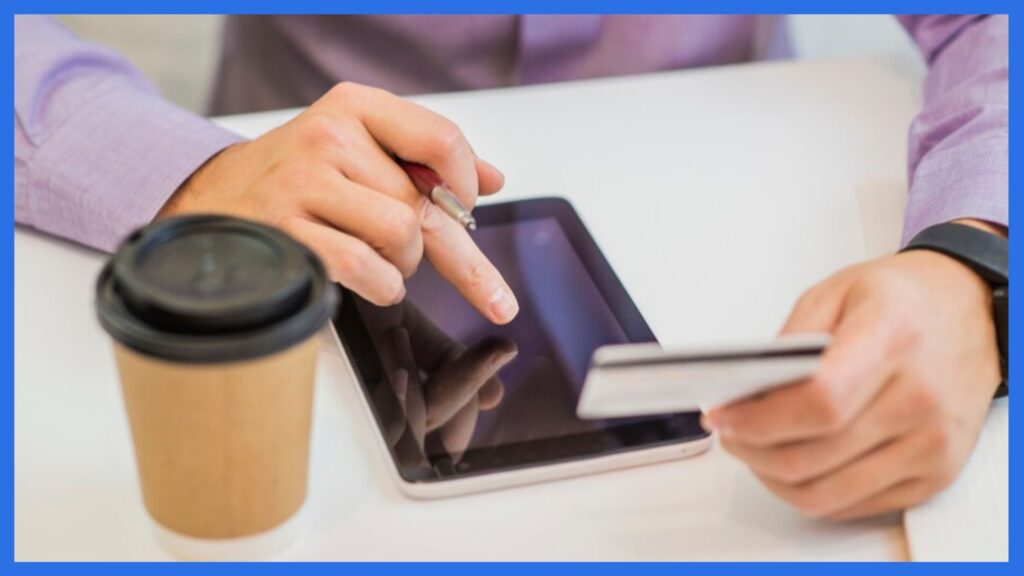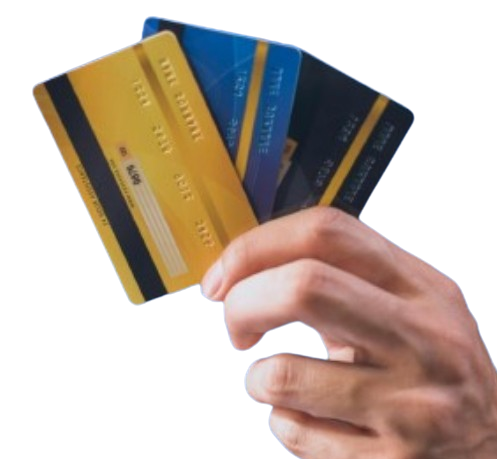
When it comes to managing a traffic ticket, convenience, payment options, and potential financial impact are all significant factors. For many, the flexibility of paying a traffic ticket with a credit card can be a practical solution. But is it possible, and is it the best choice? In this article, we’ll break down the benefits, risks, and logistics of paying a traffic ticket with a credit card, providing a comprehensive guide to help you make an informed decision.
Why Pay a Traffic Ticket with a Credit Card?
For many people, paying by credit card offers immediate financial relief and an easy transaction. But there are more benefits to consider:
- Convenience and Ease of Payment
- Using a credit card allows you to pay your traffic ticket online, over the phone, or at kiosks, avoiding the hassle of checks or cash payments.
- Most jurisdictions offer online portals where you can make payments quickly without needing to visit a courthouse or government office.
- Cash Flow Flexibility
- If you’re managing a tight budget, a credit card provides a way to settle your ticket promptly while deferring the payment until your billing cycle. This is particularly useful if the fine amount is high or if you have multiple fines due at once.
- Reward Points and Cash Back
- For those who regularly use credit cards with rewards, paying a ticket could mean points or cash back, turning a mandatory expense into a potential benefit. Some cards offer rewards on government payments, so this can add a small advantage.
- Preventing Additional Penalties and Fines
- Settling a ticket promptly is critical; failure to do so can lead to late fees or even license suspensions. Paying with a credit card can ensure you meet your deadline even if your bank account lacks the immediate funds.
How to Pay Your Traffic Ticket with a Credit Card

If you’re looking to pay your traffic ticket with a credit card, the process is typically straightforward, though it may vary slightly depending on the jurisdiction:
- Check if Your Jurisdiction Accepts Credit Card Payments
- Most states and counties now accept credit card payments for traffic tickets, either online, by phone, or in person. However, it’s wise to double-check with your local traffic court or government website to confirm accepted payment methods.
- Online Payment Portals
- Many jurisdictions offer secure online portals where you can enter your ticket information and complete the payment with a credit card. These websites are usually easy to navigate, allowing you to complete the process in just a few minutes.
- Phone Payments
- In some cases, you can call a designated hotline to pay for your ticket with a credit card over the phone. This option is ideal if you have questions about the payment process or need assistance.
- In-Person Payments
- For those who prefer face-to-face transactions, visiting a courthouse or DMV office can be an option. Many of these locations have kiosks or counters where credit cards are accepted for ticket payments.
Pros of Paying Traffic Tickets with a Credit Card
Avoiding Immediate Financial Pressure
- Credit cards allow you to pay the fine without an immediate cash outflow, easing the strain on your current budget.
Maintaining a Good Driving Record
- Prompt payment shows a responsible attitude toward financial obligations, which can positively impact your driving record and your reputation with the DMV. In some states, paying a ticket on time may also qualify you for reduced points or fines.
Building Credit (If Managed Well)
- Paying off the charge on time can contribute to a positive credit history, which in turn can improve your credit score. This is especially beneficial if you’re working on building or maintaining a high credit rating.
Potential Drawbacks of Using a Credit Card to Pay a Traffic Ticket
While credit cards provide convenience, there are also potential downsides to consider:
- High-Interest Rates
- Carrying a balance on your credit card due to a traffic fine can lead to high interest charges. If the ticket is large and you’re unable to pay it off quickly, the interest can add up and make your ticket much more costly.
- Additional Fees
- Some jurisdictions charge a convenience fee for credit card payments, which can range from 2% to 4% of the transaction. Over time, these fees add up, so you might want to weigh the convenience against this added cost.
- Potential for Increased Debt
- If you’re already managing credit card debt, adding a traffic fine to your balance can contribute to financial strain, especially if you’re working to pay down existing debt.
Understanding Credit Card Fees for Government Payments

Convenience fees for using a credit card on government portals, including traffic ticket payments, are common. While the amount may vary by location, it’s often based on a percentage of the total ticket cost. This fee covers processing costs incurred by the government for handling credit card transactions and is typically disclosed before payment.
For example, if your ticket costs $200 and the convenience fee is 3%, you’ll pay an additional $6, bringing your total to $206. For those who rely on credit cards for convenience, this fee might be minimal compared to the benefits of prompt payment. However, if you’re managing multiple tickets, these fees can quickly accumulate.
Alternatives to Paying Traffic Tickets with a Credit Card
If you’re hesitant to use a credit card for a traffic ticket payment, here are some alternative methods:
- Debit Card or Bank Transfer
- Many online portals allow payments directly from a debit card or bank account, which can help you avoid interest fees associated with credit card use.
- Cash Payments
- Some jurisdictions accept in-person cash payments, though this may require a visit to a courthouse or DMV location.
- Payment Plans
- In some cases, you may be eligible for a payment plan, particularly if the fine is large. Contacting the court or ticketing agency to inquire about installment options can provide a more manageable way to pay without using credit.
- Community Service
- Some jurisdictions offer alternatives to monetary fines, such as community service, especially for those experiencing financial hardship. This option allows you to fulfill your obligations without impacting your budget or credit.
Are There Long-Term Consequences of Paying with a Credit Card?
Using a credit card for traffic ticket payments won’t directly impact your driving record or insurance rates, but it can indirectly affect your finances. Mismanaging credit card debt or carrying high balances may lower your credit score, which in turn can influence insurance rates. Insurers sometimes review credit histories to determine premiums, so keeping balances low and making timely payments is essential for maintaining a favorable financial profile.
Should You Pay a Traffic Ticket with a Credit Card?
The decision to pay a traffic ticket with a credit card ultimately depends on your financial situation and payment habits. If you’re able to pay off the balance promptly and can handle the convenience fee, using a credit card can be a convenient and flexible option. However, if you’re already managing high-interest debt or if the convenience fee feels excessive, exploring alternatives might be the better choice.
Conclusion
Paying a traffic ticket with a credit card can offer a fast and easy solution, particularly for those facing immediate payment needs or those looking to maintain financial flexibility. However, it’s important to weigh the benefits, such as convenience and rewards, against the potential drawbacks, including interest charges and additional fees.
To ensure you’re making the best choice, consider factors like your current credit card balance, your ability to pay off the fine within the next billing cycle, and any fees imposed by your jurisdiction. By understanding both the advantages and potential pitfalls, you can confidently decide whether to settle your traffic ticket with a credit card or explore other payment methods.
Frequently Asked Questions
Yes, most states allow credit card payments for traffic tickets, though specific availability may vary by county or municipality. Check with your local traffic court or government website to confirm the accepted payment methods.
Many jurisdictions charge a convenience fee for using a credit card, typically ranging from 2% to 4% of the ticket amount. This fee covers processing costs and is generally disclosed before payment.
No, paying a traffic ticket itself won’t affect your credit score. However, if you carry a balance on your credit card and don’t pay it off promptly, interest could accrue, potentially impacting your credit utilization ratio and credit score.
Yes, paying your ticket on time with a credit card can help you avoid additional fines, penalties, or even license suspensions. Credit cards offer a way to meet payment deadlines even if you don’t have cash on hand.
Yes, if your credit card offers rewards on government transactions, you may earn points or cash back on your traffic ticket payment. Check with your card issuer to see if government payments qualify for rewards.
Yes, alternatives include paying with a debit card, bank transfer, cash, or by check. Some jurisdictions also offer payment plans or community service options if you cannot pay the ticket in full.
Many jurisdictions offer payment plans for traffic tickets, especially for those facing financial hardship. Contact the traffic court or ticketing agency to discuss your options if a full payment isn’t feasible.
Disclaimer:
The information provided on this blog is for general informational purposes only and does not constitute financial advice. While we strive to present accurate and up-to-date content, credit card terms, conditions, and offers are subject to change at the discretion of the card issuers. Readers are encouraged to thoroughly review and verify all terms before applying for any credit card.
